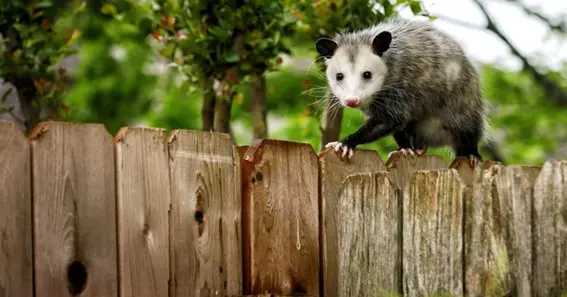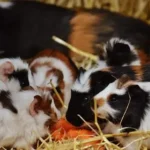The rapid growth of the human population has resulted in the encroachment of the habitats of wild animals. As long as humans continue to live in these regions surrounded by nature, there are bound to be visits from the animals that call these forests home.
While one or two wild animals looking at your home from afar may seem trivial, an actual visit can spell disaster if you don’t take precautions. Besides, one of your primary concerns as a homeowner is keeping your family and yourself safe from harm.
Unfortunately, increased wildlife around your home might make that difficult. They can damage your property by digging holes, while some carry diseases that can harm you and your family. Understanding how to keep them away from your home is essential. This article will discuss six strategies to keep wildlife away from your home.
Strategies To Keep Wildlife Away From Your Home
There are different wildlife that might want to visit our home. First, you must identify the type of wild animal moving close to your house. This way, you can devise the proper way to keep them away. Below are some general strategies to keep wildlife away from your home.
Eliminate Food Sources
Food is one of the primary reasons why wildlife visits your home. If you have a habit of eating outdoors, clean your surroundings thoroughly before leaving the area.
Most of these wild animals have a great sense of smell, so any leftover food on your porch or unclosed garbage bin will attract them. Bears, squirrels, ants, and raccoons are especially attracted to leftover food, fruits, and vegetables. So, avoid leaving food crumbs around your home to keep them away.
Furthermore, ensure your garbage tin is closed adequately so the animals can’t get into it in search of food. Invest in a garbage tin that bears can’t easily open or destroy. If the wild animals cannot access your food, it will discourage them from returning.
Try a Natural Deterrent
There are certain flowers, plants and herbs that you can plant around your home to deter wild animals. Certain aromatic flowers give off odors that are threatening to some wild animals. The crown imperial flower smells like the musky scent of a fox to the squirrels. So, planting them in your garden will prevent them from coming close to your home.
Furthermore, the paws of raccoons and rabbits are sensitive to sharp surfaces, so planting thorny rose bushes around your home can keep them away. You can also plant flowers like sage and lavender around your house since skunks and deer hate the smell of these flowers.
Make Home Unattractive To Wildlife
The area surrounding your home can serve as a perfect entryway for wildlife to enter your house. For example, trees with branches extending into your compound can house squirrels and raccoons and give them access to your roof.
To prevent this, cut the branches from your home to prevent the animals from gaining access to your roof. You can also put a band of sheet material around the tree trunks (about 5 feet above the ground) to deter the animals from climbing.
Furthermore, if you have any shrubs around your home, trim them very low so they can’t harbor wildlife like snakes. Snakes love cool and shady areas, which the shrubs can provide. By cutting the shrubs, you’re eliminating their hiding place and keeping them away from your home.
Create Barriers
Barriers are one of the most effective ways to keep wildlife away from your home, especially your gardens. Place nets and mesh walls around your home to deter the animals from wandering nearby. You can get a standard mesh fence to keep the raccoons and bears out.
However, you must note the type of mesh wall you put around your home. Electric fences and barbed wires can harm the animals and even your pets. So, while keeping the animals from your home is good, you mustn’t intentionally harm them. Instead, consider using a wall with a smooth surface that won’t cause harm to animals that may try to climb it or get stuck in it.
Try Motion-Sensor Lights
Installing motion sensors, lights, and sprinklers around your home is another way you can deter wildlife from your home. Animals like possums, skunks, deer, and raccoons hate motion sensors since they love the cover of night.
Besides, sudden shows of light and water sprays when they go close to your house are likely to startle the wild animals and deter them from coming near your home.
Eliminate Potential Wildlife Shelters
Eliminating the possible wildlife shelters in and around your home can deter them from returning. To do this, you must seal up every wall crack or gap. Every place you feel can serve as a home for wildlife should be removed from your home.
Additionally, if you have stacks of unused firewood in your yard, place them on a structure at least three feet above ground. This will discourage any wild animals from nesting there.
Furthermore, keep your wood piles away from your buildings and fences. Also, remove all dead shrubs and trees from your house, as they can provide shelter for the wildlife.
Employ Professionals
While trying to eliminate wildlife yourself is admirable, it might be better to call a professional when the situation gets out of hand. Consider employing the services of a wildlife control company like the wildlife pest control service in Indianapolis to inspect your home.
These professionals know the laws governing wildlife, so they are unlikely to make mistakes. They can thoroughly inspect your home to understand where the wildlife is getting in and devise an appropriate plan to permanently keep them from your home.
Also Read N: The Art of Luxury Living: Embracing Modern Home Improvement Trends In Your Estate
Final Summary
Keeping wildlife from your home requires experience and knowledge of the wildlife. While the tips in this article can help immensely, keeping wildlife from your home permanently depends on the animal involved and the contact rate with your home.
Also Read P: A Beginner’s Guide: How to Get Started with Bitcoin
No matter what type of wild animal you find close to your home, ensure that you take the proper steps to get rid of it.










